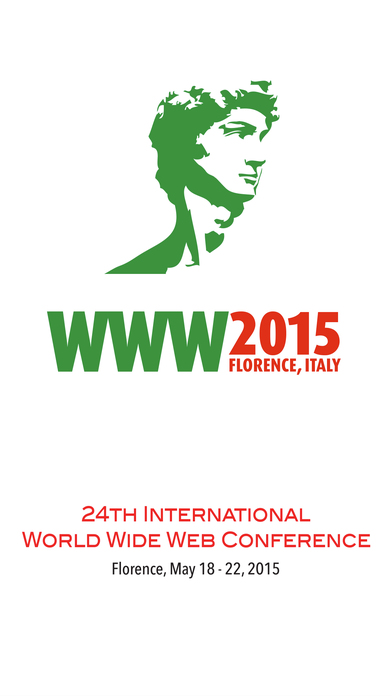【经管类】SCI期刊专刊截稿信息2条
经济学
Business Horizons
Special Issue on Advancing Women in Business Organizations: New Insights and Practices
全文截稿: 2018-05-01
影响因子: 2.157
网址: www.journals.elsevier.com/business-horizons
In 2017, the Fortune 500 boasted the largest-ever percentage of female CEOs: 5.8%. Despite obtaining undergraduate and graduate degrees at higher rates than men, women continue to earn substantially less than their similarly situated male counterparts and are less likely to advance. The consensus among scholars and practitioners alike is that there is no “quick fix,” but instead a need for consistent, thoughtful research on women’s experiences in business that informs both theory and practice. Numerous theories have tried to explain the lack of women in the uppermost echelons of business, but to date no explanation has proved. Leaders, managers, and employers still have much to learn about how to advance women in business.
Business Horizons is calling for abstract proposals for papers to provide new insights addressing these persistent gaps and challenges related to advancing women in business. As a way to improve the quality of submissions, the editors encourage interested scholars to submit their abstract to the Leadership Excellence and Gender in Organizations Research to Practice Conference at Purdue University in March 2018 prior to the journal submission deadline to improve paper submissions.
Conference Information
Scholars interested in participating should submit an abstract (750 words) to the editors and conference organizers by November 1, 2017 to the conference website at: https://www.krannert.purdue.edu/events/leadership-excellence-and-gender/home.php
Authors whose abstract proposals are accepted in December will be invited to develop their papers for the Leadership Excellence and Gender in Organizations Research to Practice Conference sponsored by the Krannert School of Management and the Susan Bulkeley Butler Center for Leadership Excellence at Purdue University and the Kelley School of Business at Indiana University and other sponsors.
The conference will be held in West Lafayette, Indiana near Indianapolis in March 2018. This conference will bring together scholars from multiple business disciplines and stakeholders from corporations with a goal of strengthening each individual paper submitted in terms of both theory development and practical implications for working managers. In addition to participating in paper presentation and author feedback sessions, attendees will be able to attend plenary research to practice panels featuring leading scholars and senior corporate leaders from companies such as Rolls Royce and Ernst & Young who are working on gender and women’s issues in business, as well as social events. Confirmed invited keynote speakers are Dr. Stacy Blake- Beard of Simmons College, Dr. Jennifer Berdahl, University of British Columbia, Dr. Shelley Correll, Stanford University, and Dr. Quinetta Roberson, Villanova University.
More information on housing and travel will be found on the conference website. Accepted participants must preregister by February 1 for a nominal fee to defray administrative costs. Meals and conference materials are provided during the conference, which is subsidized. As funds permit, we will provide partial scholarships for housing or other travel costs for doctoral students and international faculty.
Publication
Based on the editors’ recommendations, conference feedback, and fit with the issue, a subset of authors will be asked to submit their papers to Business Horizons with the hope that most of these papers will be published in the special issue after successfully undergoing external refereed review. The editors will also welcome submissions for the special issue from authors who do not attend the conference. However, authors are strongly encouraged to attend the conference as an opportunity to improve their work prior to journal submission. Submissions to the special issue will be accepted between April 1 - May 1, 2018. (https://www.krannert.purdue.edu/events/leadership-excellence-and-gender/home.php)
We invite research papers on advancing women in business organizations and relevant gender dynamics that offer fresh insights for managers today. Submissions should address topical and timely issues of relevance to a broad audience of business academicians and practitioners.
Specifically, we seek submissions on a broad range of topics that investigate, but are not limited to:
- Career experiences of women in business
- The effect of organizational programs such as mentoring and affinity groups on women’s career and personal outcomes
- Organizational experimentation with new ways of working to support gender inclusion
- Gender differences in perceptions of leadership, career satisfaction, and goal attainment, and relevant management and business practices
- Gender pay equity
- Women on corporate boards
- Managing gender across generations
- Best practices in recruiting and advancing women in traditional and digital age firms
- Women in STEM
- Female entrepreneurship
- Women in philanthropy: Implications for business and non-profits
- Women in the sharing economy
- Opting out or pushed out? Women and career dynamics
- Best practices for work/life and workload balance
- Gender differences in negotiation
- Women and business strategy
- Global and multicultural perspectives on women in business
管理学
Organizational Behavior and Human Decision Processes
Call for papers: Nudges and Choice Architecture in Organizations
全文截稿: 2018-06-01
影响因子: 2.454
网址: www.journals.elsevier.com/organizational-behavior-and-human-decision-processes
This editorial team has significant experience in research on nudges and choice architecture in organizational contexts and journal editing. Katherine has served as an Associate Editor at Management Science since 2013 and was previously a member of the Organizational Behavior and Human Decision Processes editorial board. Gretchen Chapman has extensive editorial board experience, including serving as a Senior Editor for Psychological Science; as an Associate Editor for Psychological Science, the Journal of Experimental Psychology, and Medical Decision Making; and on the editorial boards of the Journal of Behavioral Decision Making, the Journal of Experimental Psychology: Applied, The Journal of Experimental Psychology: General, the Journal of Experimental Psychology: Learning, Memory and Cognition, Medical Decision Making, Organizational Behavior and Human Decision Processes, and Psychological Science. David Rand is an ad-hoc member of the editorial board of the Proceedings of the National Academy of Sciences and a member of the editorial boards of Current Opinion in Psychology and Heroism Science. Todd Rogers has served as an ad-hoc reviewer for a wide range of journals and will make his editorial debut with this special issue. Richard Thaler has served as an Associate Editor for the Journal of Accounting, Auditing, and Finance, the Journal of Business, the Journal of Behavioral Decision Making, the Journal of Risk and Uncertainty, the Quarterly Journal of Economics and Management Science and edited the book Advances in Behavioral Finance.
Their biographic sketches are attached.
Why is this Special Issue Important?
The 2008 publication of the best-selling book Nudge: Improving Decisions about Health, Wealth and Happiness by Richard Thaler and Cass Sunstein sparked enormous interest in how choice architecture and nudges can be used to improve outcomes in organizations. Policymakers inside and outside of government are scrambling to master new nudging strategies to improve the decisions of citizens, employees and customers. At least 51 countries now boast “centrally directed policy initiatives” influenced by behavioral science, or so-called “nudge-units,” and many Fortune 500 companies are opening similar divisions. A recent review article highlighted the extraordinary cost-effectiveness of nudges relative to other levers of influence (e.g., incentives, rules, educational campaigns) that are typically used by policymakers inside and outside of organizations to influence behavior (Benartzi et al., 2017). However, in spite of the growing applied interest in using nudging as a policy tool, far more field research is needed on what nudges and choice architecture strategies work best to change behavior in organizations. This special issue is meant to (a) publish (future) seminal papers testing the efficacy of nudges and choice architecture through field experiments in organizations and (b) substantially accelerate and shape the direction of academic research in this area.
Scope of the Special Issue
Appropriate papers should present field experiments (alone or in combination with laboratory experiments) that explore the efficacy of nudging and choice architecture in organizations. By “field experiment”, we mean a study with random assignment of participants to conditions and participants who engaged in the tasks under study in an environment where they naturally undertake these tasks. We are most interested in experiments (a) whose outcomes are measures of actual behavior (rather than self-report), (b) that include participants who are not MTurk workers, undergraduates in a laboratory, or survey panelists from services like Qualtrics and ClearVoice, and (c) that were conducted in real-world organizational settings. We adopt the following definition of a nudge: nudges “aim to change ‘people’s behavior in a predictable way without forbidding any options or significantly changing their economic incentives. To count as a mere nudge, [an]…intervention must be easy and cheap to avoid. Nudges are not mandates' (Thaler & Sunstein, 2008). Nudges do not impose material costs but instead alter the underlying ‘choice architecture,’ for example by changing the default option to take advantage of people’s tendency to accept defaults passively. Nudges stand in contrast to traditional policy tools, which change behavior with mandates or bans or through economic incentives (including significant subsidies or fines).” (Benartzi et al., 2017)
We particularly seek manuscripts that have several of the following features: introduce new tools of choice architecture, shed light on important ongoing debates in the literature, yield important new empirical or theoretical insights about previously-studied nudges, are of policy importance, or open up promising directions for future research.
An illustrative, but not exhaustive list of topics that fall within the scope of this special issue is provided below:
- Field validation and testing of nudges or choice architecture techniques in organizations that have previously only been tested in the laboratory or in limited field contexts.
- Field validation and testing of novel, untested nudges or choice architecture techniques in organizations.
- Comparisons of effect sizes or cost effectiveness of multiple nudges and/or economic levers related to managerially relevant outcomes.
- Field results that shed light on novel mechanisms underlying nudges or choice architecture
下载Call4Papers App,获取更多详细内容!


登录查看更多
相关内容
专知会员服务
10+阅读 · 2019年11月5日
Arxiv
16+阅读 · 2020年1月2日
Arxiv
5+阅读 · 2018年5月23日




